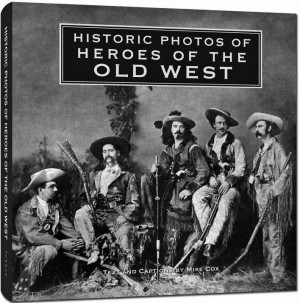by Jeff Donlan
What do you do with the anger of others? It’s hard not to get angry back. There may be a lesson in that, but when face-to-face with rage, what do you do? In this case, you vote.
You vote No on the jumble of angry anti-tax, anti-public-sector measures contained in Proposition 101 and Amendments 60 and 61.
I don’t mean to belittle anyone’s frustration with society and government. You may not like the status quo, just as you may not like a bulging middle and flabby thighs, but how do you lose weight? Do you diet and exercise, or do you cut off a leg?
Proposition 101 and Amendments 60 and 61 propose cutting off a leg, leaving the body permanently crippled and sadly less able to exercise.
Amendment 60 is about “property taxes” but in so many different ways it’s hard to believe this got through the “single-issue” rule for election questions.
Amendment 61 is ostensibly about “government debt,” but it plays off fear of the current crisis in personal and national debt, hoping to write into the Colorado constitution crippling restrictions on state and local government. It’s not about a crisis of debt in Colorado government.
Proposition 101 is another hodge-podge, reducing vehicle and telecommunications taxes and fees, and incrementally reducing the state income tax, eventually cutting a quarter of the state’s income tax revenues. (Remember this cut when we come back to mandates in Amendment 60 below.) Proposition 101 alone will cut the Salida Regional Library budget by $85,000 per year.
Pro-forces complain that analysis of these measures never mention that parts are phased in over a number of years. This is an absurd complaint. We’re still talking about cutting off a leg – quickly or slowly doesn’t matter. Don’t be fooled.
Let’s look closely at Amendment 60 as an example of how all three are composed. If you get out your text of the ballot language, you’ll see that Section (b) is a mixture of property tax issues of varying importance.
“Electors may vote on property taxes where they own real property.” This might sound reasonable, but it is a profound change from the American tradition of voting where you live. Think about it.
“Adapting state law, all districts shall allow petitions to lower property taxes as voter-approved revenue changes.” This may sound harmless enough, but look at how easy it is to get an amendment to the state constitution – the highest order of law – on the ballot. Do you want your local ballot cluttered every year with even more cranky initiatives? Citizen initiatives are fine in principle; messy in practice. There are good reasons for representative democracy.
“Property tax issues shall have November election notices and be separate from debt issues.” Someone dislikes Title 32 Special Districts, which can have non-November elections. Do you think this is important enough to amend the constitution? This line is sleight of hand; humming you to sleep.
“Property tax bills shall list only property taxes and late charges.” Who cares? And why should this be in the Colorado Constitution?
“Enterprises and authorities shall pay property taxes; lower rates shall offset that revenue.” This is a red herring. Taxpayers pay one way or the other. If this helps anyone, it’s non-resident property owners, who would also get new local voting privileges (see above).
“Enterprises and unelected boards shall levy no mandatory fee or tax on property.” Not sure yet what this will mean. The Salida Regional Library board, for example, is unelected but appointed by elected officials; it also, as required by law, certifies a property tax mill levy to the county commissioners each year. Some legal opinions argue this circumstance will remain legal. We’ll see, probably after years in court, as happened with TABOR questions after 1992. I don’t see the point of this proposal except to throw a wrench in the works.
As a voter, you may be nodding off now reading the very question that requires your full attention and vote. Maybe something in there even sounds reasonable. Now, without warning, it hits the fan:
“Future property tax increases will expire within ten years.” Bang. Doesn’t matter what local voters want. Maybe you want to commit to a bigger library or more fire protection. Fine, but in ten years, you have to vote again, and then again, and again …
“Prior actions to keep excess property tax revenue are expired; future actions are tax increases expiring within four years.” Boom. This will cut the Salida Regional Library budget by hundreds of thousands of dollars annually; other districts and local governments nearly a billion. The decisions of local voters across Colorado to keep tax revenues in excess of TABOR will be nullified in one fell swoop.
“Non-college school districts shall phase out equally by 2020 half their 2011 rate not paying debt; state aid shall replace that revenue yearly.” Ka-Booom! Remember the state income tax reduction mentioned above? On top of that cut, Amendment 60 requires the state to backfill local revenue reduction for school districts. Reduce income but increase expenses.
If this were fully implemented today, K-12 education would consume over 99% of the state budget, leaving $38 million for everything else. Everything: corrections, health and human services including Medicaid, higher education, highways, everything else. Over $3.5 billion of state services cut to $38 million. You decide.
Amendment 61 writes new debt restrictions into the state constitution that are pointless except as vindictive, anti-public sector measures. Restricting all debt to voter-approved, bonded debt of ten years or less is designed to virtually eliminate government projects. Any government currently paying off debt, regardless of the revenue source, must reduce its tax rate once the debt is paid off. It’s like having your salary cut once your house is paid off. And under Amendment 61, there will be only ten-year mortgages, so there won’t be many.
The bottom line: What do these amendments improve? Whom do they benefit? Even supporters will suffer, regardless of their fantasies of a New America. These are adolescent proposals – lashing out in careless anger.
These initiatives have many facets, some of them unclear and destined for the courts. If you don’t fully understand all the effects of a proposal – especially a constitutional amendment – the only responsible vote is No.
Jeff Donlan currently nurses at the public teat as director of the Salida Regional Library. Mindful of the disagreeable nature of this arrangement, he strives to give taxpayers an excellent return on their dollar.

